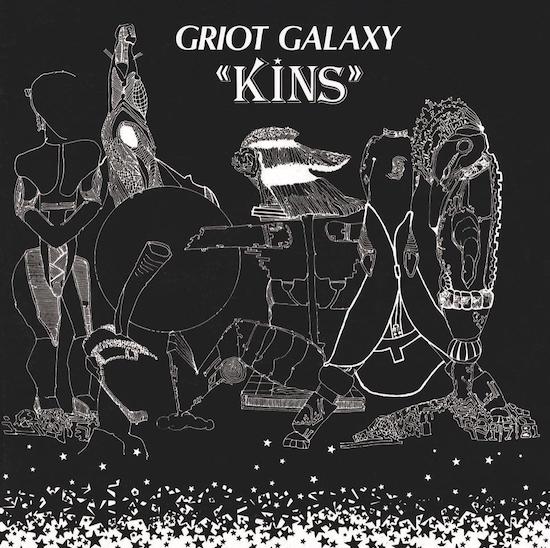As much as Detroit is known for playing a major role in the development of countless styles of music, from northern soul to techno, the city has never gotten its full due as a jazz hotbed. This, despite the fact that a short list of musicians who cut their teeth in the city – Alice Coltrane, Donald Byrd, and Elvin Jones to pick a few for the sake of brevity – reads like a Hall of Fame rundown.
C’est la vie, I guess. Even with that being the trend, though, the late saxophonist Faruq Z. Bey’s rotating ensemble Griot Galaxy are exceptionally overlooked, probably at least partially thanks to the shit hand of fate dropping ¾ of its initial run of their debut album Kins unceremoniously into the rubbish bin back in the 1980s. Whatever the case, an overdue reissue of that 1982 album on Third Man Records hopes to finally correct the record.
In terms of presentation and intent, Griot Galaxy were not a band without precedents: their interest in science fiction owed an obvious debt to Sun Ra (with whom bassist Jaribu Shahid and drummer Tani Tabbal had played before joining Griot Galaxy), and the silver Afrofuturist face paint they often wore onstage most immediately recalled their peers down Interstate 94, the Art Ensemble of Chicago. Like those fellow midwesterners, Griot Galaxy were a consciousness-raising ensemble whose music alternated wildly between the taut and the free.
Bey’s dedication to odd meters and tight, highly complex harmonic structures, however, set Griot Galaxy apart from many other free/avant-garde players. Even at its most abstract, the music on Kins is focused, never wandering; One foot is always tapping to an underlying, eternal pulse, which sometimes even means playing something (heaven forbid) danceable. ‘Zenelog Aintro’ in particular sounds something like James White and the Blacks trying to cover Bohannon, or maybe the Lounge Lizards without the winks.
Kins sounds of a piece with its time, and isn’t likely to garner a massive audience now. Still, it’s an under-heralded piece of essential Detroit music history, and it’s wonderful that it will now be easier for people to hear it.



